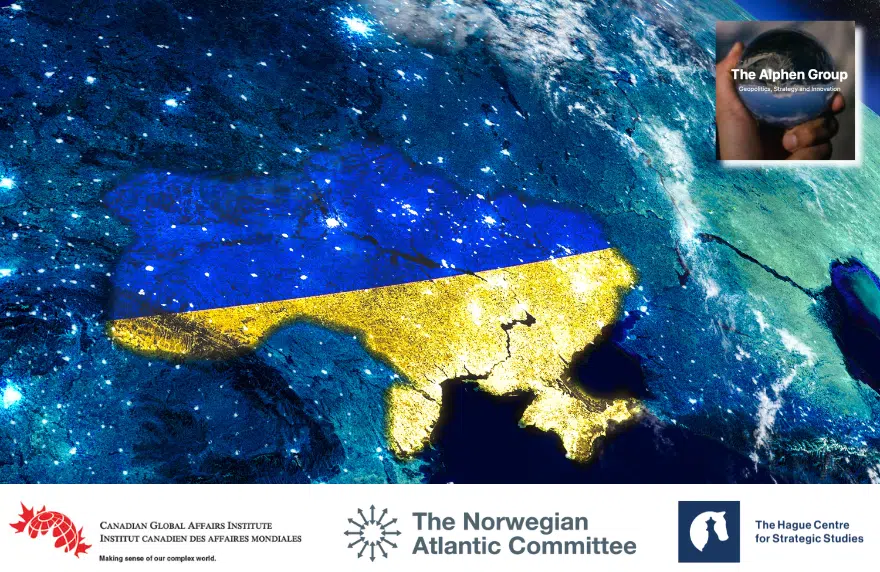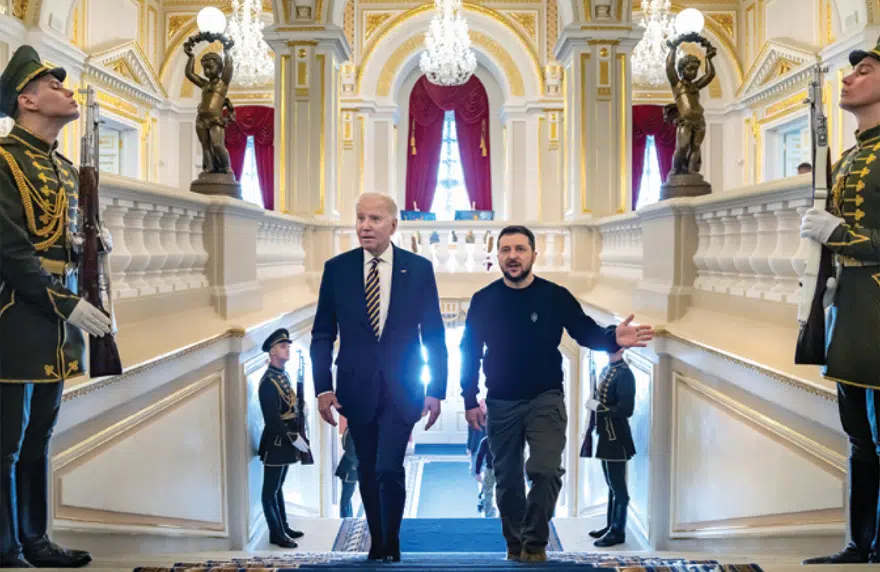Research
The paradox of any Western strategy is that it is ultimately dependent on reform in Russia, the international experts from The Alphen Group state. What is clear is that until then there can be no peace. Consequently, there are only 2 strategic choices realistically on offer. Make peace with Russia at Ukraine’s expense in the hope it will close a chapter and make Europe more secure. OR make peace with Russia only when Ukraine has been successfully defended and in so doing send a clear message to the world about the West’s collective determination to resist such aggression.
How to deal with Russia? If ‘Plan A’ was to force Russia out of Ukraine rapidly, it has failed. ‘Plan B’ must be to forge a position of relative Western strength in what is becoming a proxy systemic confrontation between the West and Russia (and its supporters). To do that, the West will need to demonstrate to Moscow that it is Ukraine’s strategic depth. Ukraine’s incursion into Western Russia creates just such an opportunity, although it also reveals the character of contemporary Russia, the weakness of its strategy and the danger of desperate miscalculation by the Moscow regime.
In December 1967 the landmark Harmel Report was delivered to the Alliance. Entitled “The Future Tasks of the Alliance” it stated, “Military security and a policy of détente are not contradictory but complementary. Collective defence is a stabilizing factor in world politics. It is the necessary condition for effective policies directed towards a greater relaxation of tensions. The way to peace and stability in Europe rests on the use of the Alliance constructively in the interest of détente. The participation of the USSR and the USA will be necessary to achieve a settlement of the political problems in Europe”.
The aim of the TAG Russia Strategy 2024 is to re-establish a just, equitable and international rules-based twenty-first century system of which Europe is a part in the face of the current assault by the Putin regime and by so doing ultimately create the conditions for dealing with Russia. The specific goals are thus:
1. Halting and if possible reversing Russian aggression of which the attack on Ukraine is the most egregious example.
2. Deterring future destabilizing behaviour.
3. Reinforcing sanctions and other forms of pressure until Russia is again prepared to abide by international law and respect the sovereignty of its neighbours.
4. By demonstrating both resolve and reason the creation in time of the conditions for a return to dialogue leading to reform of Russia and its world view.
At the core of the Strategy is the need to keep diplomatic channels open for dialogue to reduce risks – as was done to good effect during much of the Cold War – whilst at the same time demonstrating resolve. For that to happen the West, with Europeans to the fore, must accept it is engaged in long-term strategic competition with an aggressive, revanchist, authoritarian Russia that seeks to impose a Putinesque vision of a renewed Russian empire. Russia’s war on Ukraine must also be seen in the context of a wider global and systemic challenge by authoritarian regimes committed to creating a world order that reinforces their respective positions of power and influence.
To prevent that, the Strategy adopts five lines of action: military, information, resilience, economic, and diplomatic. It also proposes two phases, the short term which is nominally out to 2030 and the longer term beyond. The situation in the closing months of 2024 demands an immediate focus on the military, intelligence, and coercive economic measures, with diplomatic efforts in support. For any such strategy to work the complete support of the United States is vital because Putin and the Kremlin place the greatest importance on the appearance of equality with Washington.
Therefore, the stakes of the Russo-Ukraine War could not be higher. For Moscow (and Beijing) what is at stake is not only the future of the rules-based international system, but the influence of the West in the twenty first century world. Russia and China are challenging the collective West and the principles of the rules-based international order established following World War Two. Whilst the West fully accepts that the system must evolve to reflect the reality of power in the twenty-first century world whilst Moscow simply seeks the destruction of the system for the sake of it, Beijing rather wants to gain economic and thus power advantage. If they succeed the result will inevitably be the forced abandonment of a system designed to foster security and stability as opposed to the dangerous anarchy of Machtpolitik.





